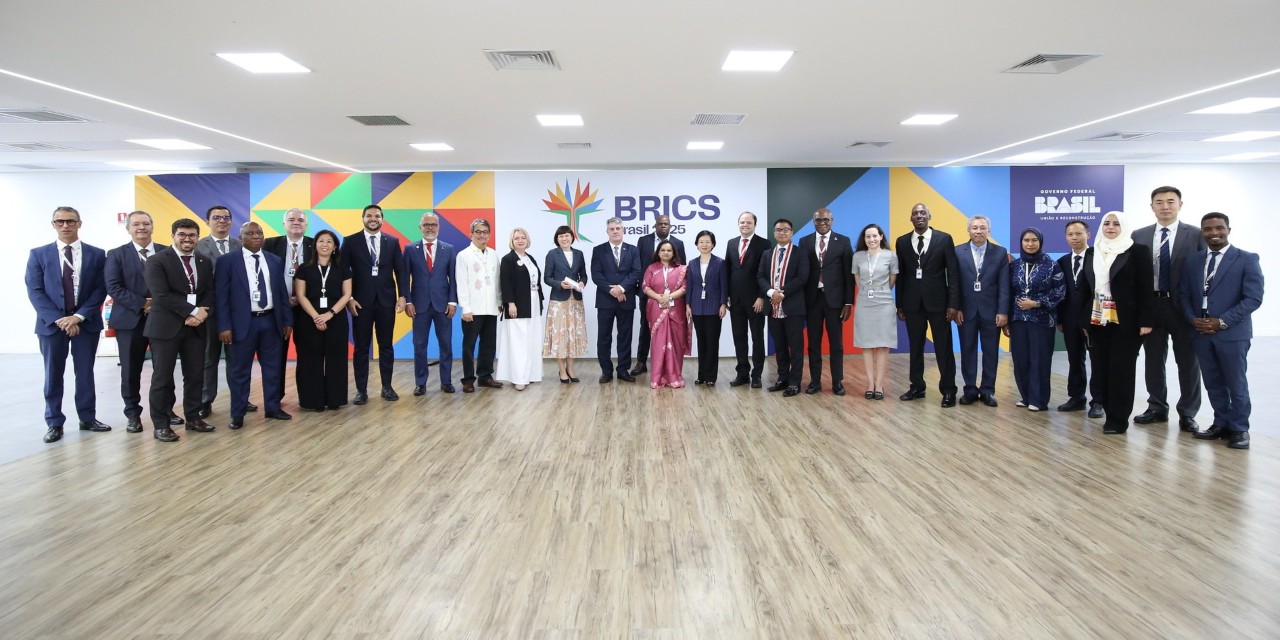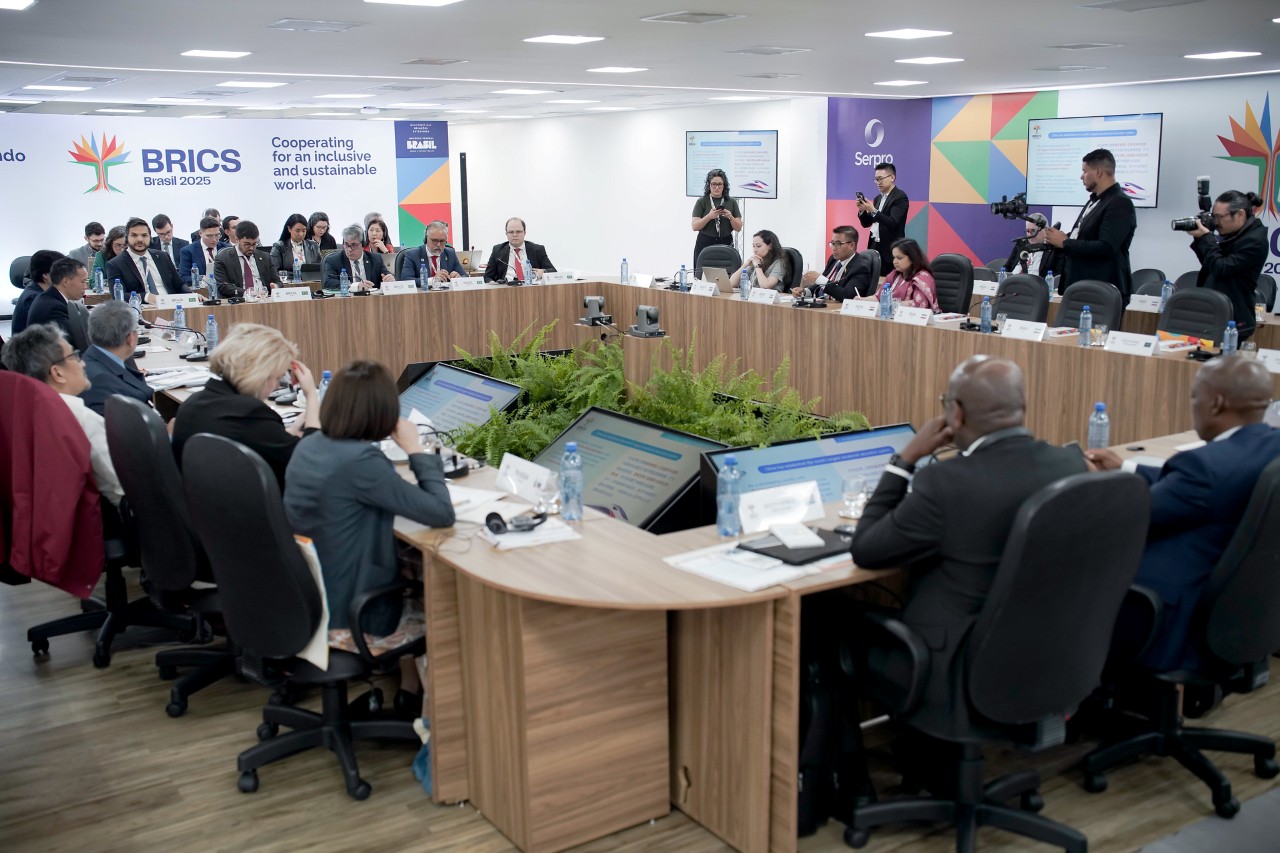Collaboration in vocational education takes center stage at BRICS meeting
Gathering in Brasilia brings officials together to strengthen partnerships, share best practices, and drive innovation in technical training

The push for deeper cooperation, the exchange of best practices, and the promotion of innovation in technical and vocational education were the driving themes of the BRICS Alliance for TVET (Technical and Vocational Education and Training) Cooperation (BRICS-TCA) meeting held Monday in Brasilia. The event convened officials from BRICS countries, who seized the opportunity to share experiences and engage in dialogue focused on consolidating and forging institutional partnerships within the bloc.
The session was moderated by Francisco Figueiredo de Souza, special advisor for international affairs at the Ministry of Education and coordinator of the BRICS Education working group. Souza emphasized the alliance’s importance in establishing “a multilateral platform for the exchange of policy experiences and best practices, encouraging direct cooperation among TVET networks and institutions.” He also noted that vocational and technical education has been given a prominent place in the week’s schedule, which culminates on June 5 with the BRICS Education Ministers’ Meeting at the Itamaraty Palace—one of the signature events of Brasil’s rotating presidency.
“These ongoing initiatives show the growing institutionalization of TVET cooperation within BRICS and highlight the alliance’s role as a catalyst for innovation and policy exchange in the field of vocational education,” Souza said. Past initiatives under the alliance include conferences, online training courses for teachers, and student exchanges among BRICS nations.
Since its creation in 2022, the alliance has reaffirmed the central role of vocational education in national socioeconomic development—particularly in a time of rapid change in the world of work. Marcelo Bregagnoli, Secretary for Vocational and Technical Education at Brasil’s Ministry of Education, emphasized this point in his remarks, calling the diversity within BRICS “a source of strength that enriches the spirit of collaboration and innovation that binds us.” “By sharing best practices and innovative experiences, we can collectively build more inclusive and sustainable pathways, aligned with both the present and future demands of the labor market,” he added.
Bregagnoli outlined three key challenges that should guide the alliance moving forward, according to Brasil’s rotating presidency:
- ensuring high-quality education that fosters the social and economic inclusion of youth;
- reinforcing the importance of TVET for the socioeconomic development of BRICS countries;
- and integrating new technologies and innovative practices into technical training programs.
During the discussion, participants were invited to share their experiences in advancing vocational and technical education, framed around three central themes: access, retention, and success of young people in TVET; the role of vocational education in national development; and innovation.
Secretary Marcelo Bregagnoli highlighted the policies developed under the Ministry of Education and recalled the significance of the Federal Network for Professional, Scientific and Technological Education, established in 2008 by then-President Luiz Inácio Lula da Silva through Brazilian Federal Law No. 11,892.

International partnership
BRICS representatives were invited to share their national experiences and encouraged to exchange ideas with Brazilian authorities. Zhai Jinming, Director of Professional Education Cooperation at the China Education Association for International Exchange (CEAIE), stated that China seeks to expand this global cooperation and that “communication between China and Brasil is becoming increasingly close, particularly in the context of expanding and deepening industrial cooperation.” He added, “I believe the friendly relationship between China and Brasil will endure and grow stronger in the years ahead. The TCA, as you can see, is also continuing to expand.”
According to the Chinese delegate, the BRICS-TCA has played a significant role in advancing cooperation in vocational education among member states through teacher and student exchanges, joint research initiatives, and training programs—particularly in teacher training. “I believe the scope of this cooperation will continue to grow, and that exchanges and partnerships will deepen, because vocational and technical education is vital for young people, for employability, and for the social and economic development of all countries,” Jinming concluded.
He added that the Alliance is poised to contribute meaningfully contribution to vocational and technical education (TVET) globally, particularly in support of the Global South, emerging economies, and other nations. The meeting also included delegates from Egypt, Ethiopia, India, Indonesia, Russia, South Africa, and the United Arab Emirates.
Agenda
The BRICS education agenda continues throughout the week. On Tuesday, June 3, a seminar for leaders of vocational and technical education institutions from BRICS countries will be held at the headquarters of Brasil’s Ministry of Education (MEC). The program includes discussions on social inclusion, national development, and employability in vocational education. Also on the same day, the 3rd Meeting of senior BRICS education officials is scheduled to take place at Serpro.
On June 4, international delegates will visit the Riacho Fundo campus of the Federal Institute of Brasilia (IFB) for a technical tour. Students from the culinary arts technical program, the undergraduate gastronomy program, and the English language teaching program will share their experiences and deliver hands-on demonstrations for the BRICS delegations.
On June 5, Brasil’s Education Minister Camilo Santana will host the 12th Meeting of BRICS Ministers of Education. The gathering will review Brasil’s priorities for educational cooperation within the group in 2025.
In addition to the BRICS education ministers, the agenda will include the participation of Kátia Schweickardt, Secretary for Basic Education; Marcelo Bregagnoli, Secretary for Technical and Vocational Education; Marcus Vinicius David, Secretary for Higher Education; Manuel Palácios, President of the National Institute for Educational Studies and Research (Inep); and other senior education officials from Brasil.
The week’s activities will conclude on June 6 and 7 with the BRICS University Presidents Forum, to be held in Rio de Janeiro.
English version: Judas Tadeu de Azevedo Neto (UFC)
Proofreading: Luana Ferreira de Freitas (POET/UFC)